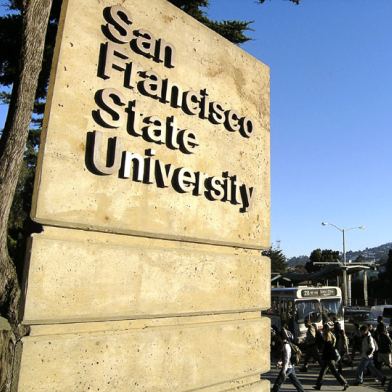
Thousands of San Francisco State University students are being relocated to various classrooms on and off campus today after the school’s Science Building was shut down for the spring semester.
The three-story building was found to have potentially dangerous levels of asbestos, mercury, arsenic, lead and other substances during a routine inspection in December.
Previously: SF State Building Shut Down Over Toxic Chemical Concerns
The school had hoped to reopen the Science Building by the end of winter break, but announced last week that the building, which contains labs, classrooms and lecture halls that accommodate more than 9,000 students, would remain closed through the semester.
The spring semester started today.
Classes have been moved to alternate locations in conference rooms, computer labs, classrooms and chemistry and engineering labs in other buildings, school officials said.
Existing trailers on campus are being retrofitted to accommodate engineering and chemistry lab classes, and some classes will likely move into those trailers later in the semester.
One lab class that is part of the school’s Clinical Laboratory Science program is being held at a University of California at San Francisco facility for at least half the semester until an on-campus site can be arranged, school spokeswoman Ellen Griffin said.
Two engineering lab classes have been canceled because of the Science Building closure. Those cancellations have affected 30 students registered for the lab, which is not required for the engineering major, according to the school.
More tests and evaluations are under way at the shuttered Science Building, Griffin said.
The school has yet to determine whether the hazardous materials may have affected student and employee health, she said.
In an email sent to students, faculty and staff on Sunday, university president Les Wong wrote, “We begin the semester with one fewer building to serve our needs…While hundreds of your colleagues have been hard at work day and night to minimize the disruptions this may cause, inevitably there will be some confusion and inconvenience.”
Sasha Lekach, Bay City News









